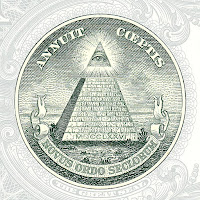“In the beginning was the Word, and the Word was with God, and the Word was God. ... The Word became flesh and made his dwelling among us” (John 1:1, 14).Did Jesus teach his divinity? It’s trivial to show that the various authors of the New Testament called Jesus God. John 1:1-3 is the example that immediately springs to most people’s minds, but it’s throughout the writings of the apostles. (If anyone wants to take a brief tour, John 1, Col 1, and Heb 1 cover the bases well.) But what if they imposed that notion on Jesus after he was gone? That is what many people today allege — that Jesus did not claim to be God and would have been appalled at the notion. So we’re going to look at examples of Jesus claiming deity.
You won’t find Jesus saying, “I’m God” in scripture. Besides the fact that he wouldn’t have been properly understood, it would have landed him charges of blasphemy. But he did claim to be God. How?
Bowman and Komoszewski, in Putting Jesus in His Place: The Case for the Deity of Christ, demonstrate that Jesus (and the apostles, on his behalf) laid claim to the prerogatives of God. They organize the evidence using the acronym HANDS:
- Honors: Jesus shares the honors due to God.
- Attributes: Jesus shares the attributes of God.
- Names: Jesus shares the names of God.
- Deeds: Jesus shares in the deeds that God does.
- Seat: Jesus shares the seat of God's throne.
Jesus claims the honors due to God: Jesus allowed himself to be worshiped, something no angel ever permits (eg, Rev 19:10), for example
- “Then the eleven disciples went to Galilee, to the mountain where Jesus had told them to go. When they saw him, they worshiped him...” (Matt 28:17).
- “Thomas said to him, ‘My Lord and my God!’” (John 20:28).
- Jesus claimed pre-existence: Matt 23:37, John 8:58
- Jesus demonstrated omniscience: Mark 2:6-8, John 4:17-18
- Jesus claimed omnipresence: Matt 28:20
Then, in the Great Commission, Jesus changes the Jewish bapismal formula. His followers would not baptize in the name of YHWH. They would baptize in the name (singular) “of the Father and of the Son and of the Holy Spirit” (Matt 28:19).
Jesus claims to share in the deeds that God does:
- Jesus claims to be able to forgive sins: Mark 2:5
- Jesus controls the elements: Mark 4:35.41
- Jesus claims to be able to give new Law or change the old: Mark 10:2-12, 13:31
- Jesus claims to be the one who will judge humanity: Matt 16:27 (also see below)
- Jesus claims to be able to do anything for his followers: John 14:13-14
Again the high priest asked him, “Are you the Messiah, the Son of the Blessed One?”See also Matt 11:25-27, 25:31, 28:18.
“I am,” said Jesus. “And you will see the Son of Man sitting at the right hand of the Mighty One and coming on the clouds of heaven.”
The high priest tore his clothes. “Why do we need any more witnesses?” he asked. “You have heard the blasphemy. What do you think?” (Mark 14:61-64)
As it turns out, Matt 28:16-20 contains an example of every one of these classes. Mark 2:1-12 contains at least three.
Dan Brown made the claim that no one thought of Jesus as divine before the 4th Century. The truth is that the earliest debate over the nature of Christ was whether he was really human. You hopefully now see why. The early church had no doubt that Jesus claimed to be God, and they worshiped him as such from the very beginning.
So the one who “became flesh and made his dwelling among us” was the true God, the maker of heaven and earth, who became a man for the sole purpose of dying on the cross to rescue us from the consequences of our rebellion against him.
For more on this topic, see William Lane Craig, “The Self-Understanding of Jesus” in Reasonable Faith.
Part of Christianity 101



